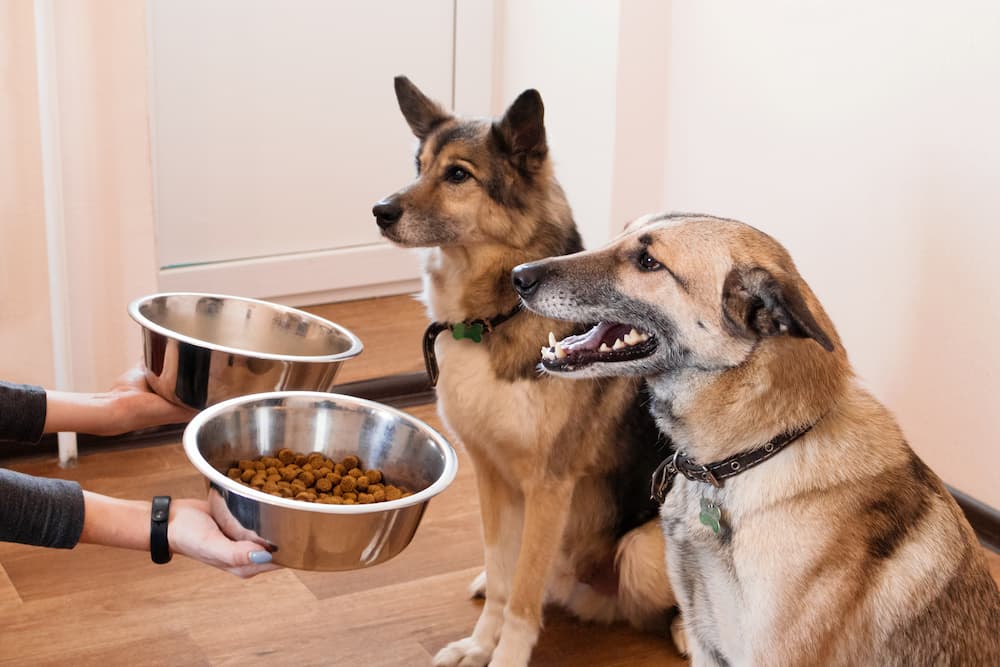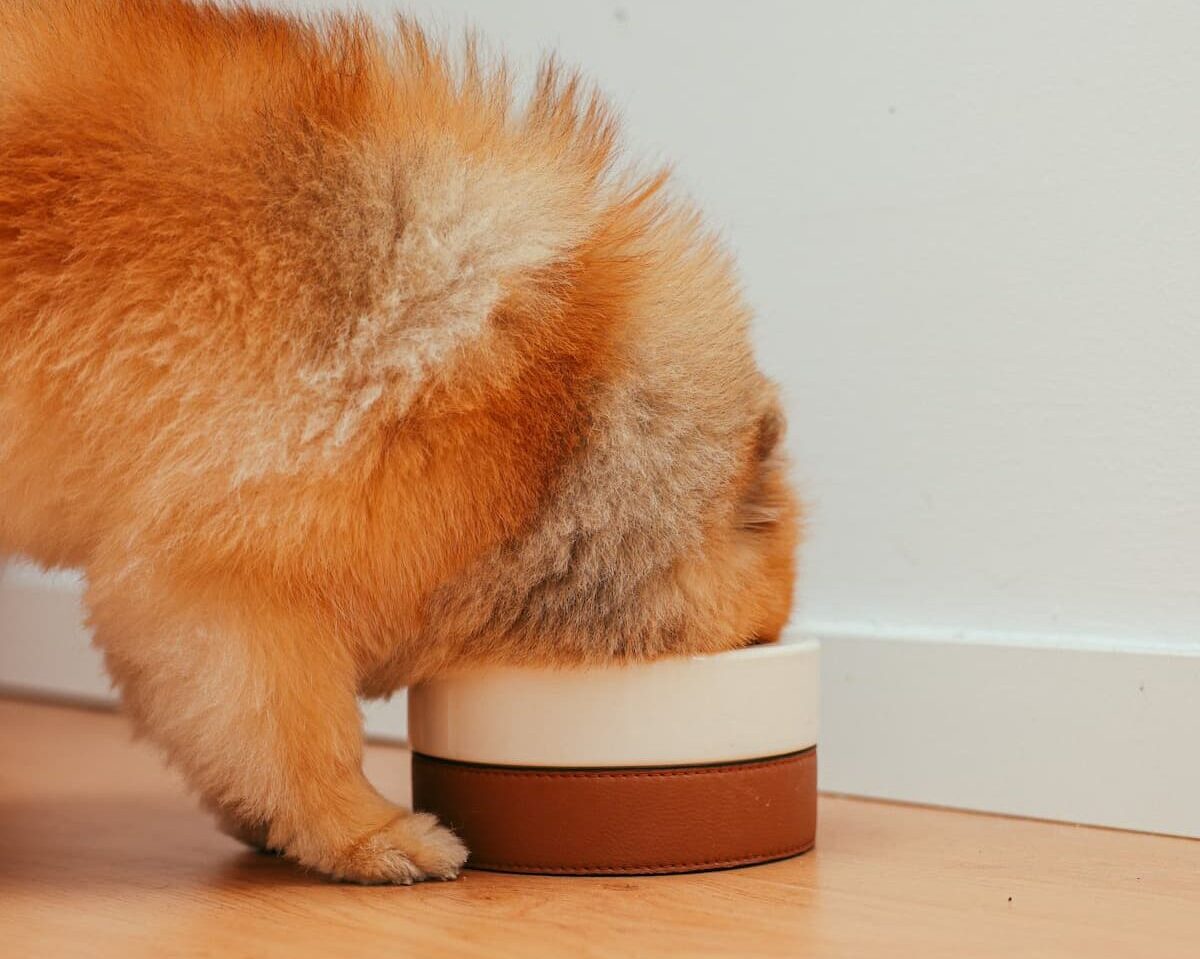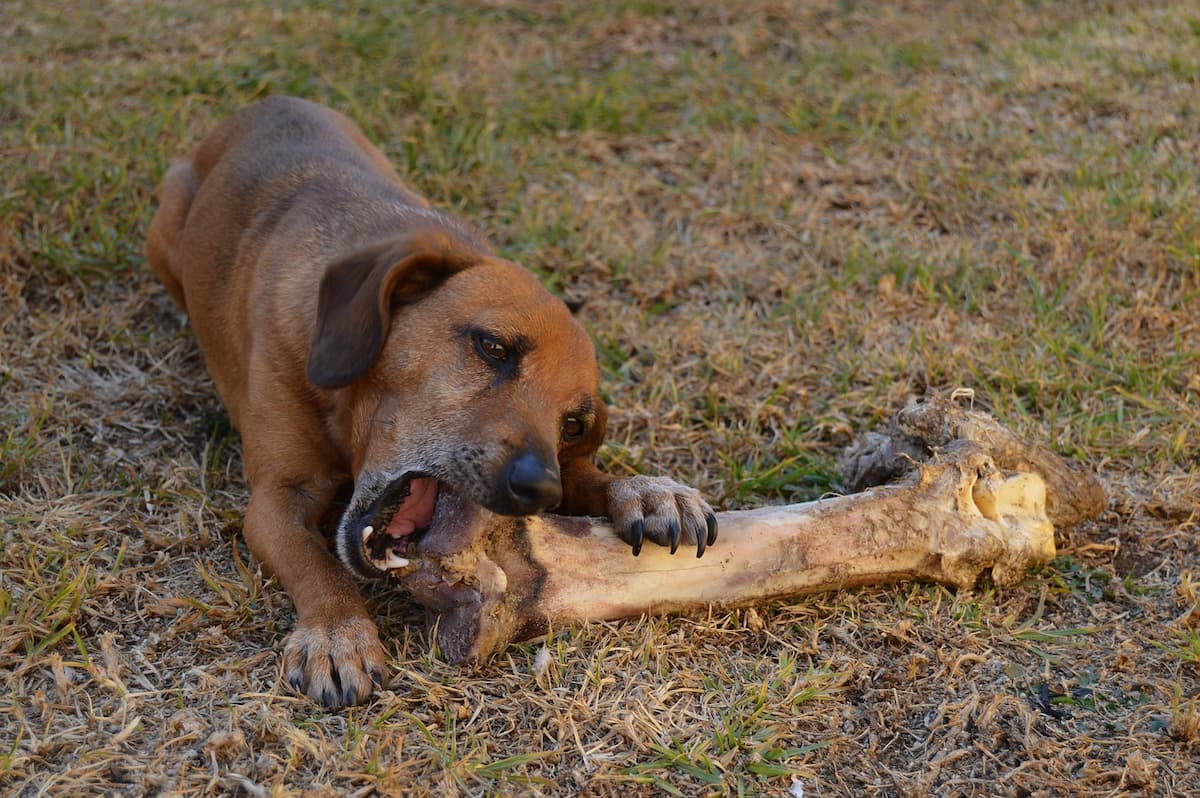Have you ever experienced the baffling moment when your dog completely snubs their food bowl?
You stand there, scratching your head, wondering what could have possibly turned them off from their delicious meal.
It’s as if they have suddenly developed a discerning palate, or perhaps there’s something else going on?
This article will highlight the reasons for this frustratingly baffling behavior.
Why Is My Dog Suddenly Not Interested in Food?
There are actually several reasons as to why your pup is refusing its meal, ranging from temporary loss of appetite to underlying health issues:
- Changes in their environment: The environment plays a significant role in a dog’s overall well-being, and any modifications to their surroundings can have an impact on their appetite.
Dogs are creatures of habit, and they rely on routine to feel secure and comfortable.
When there are sudden changes in their environment, such as moving to a new house, having new people or pets in their space, or even rearranging furniture, it can cause them stress and anxiety.
- Dental problems: Just like humans, dogs can suffer from dental issues such as tooth decay, gum diseases, or broken teeth. These dental problems can make chewing painful for your canine companion, leading to a decreased appetite.
If you notice any signs of discomfort while your dog is eating or see bleeding or inflamed gums, it’s essential to seek veterinary care.
- Underlying medical conditions: Just like humans, dogs can experience a variety of health problems that can affect their appetite.
Illnesses such as gastrointestinal problems, kidney disease, or liver issues can impact a dog’s appetite and cause them to lose interest in their meals.
If your dog shows other concerning symptoms like vomiting, diarrhea, excessive thirst, or weight loss along with their decreased appetite, it would be wise to consult a veterinarian to determine the underlying cause and provide appropriate treatment.
- Separation anxiety: Some dogs are particularly prone to separation anxiety, which can arise when they are left alone for extended periods.
This condition can cause intense distress and manifest in various ways, one of which is a change in eating habits.
If your dog experiences separation anxiety, they may become too anxious to eat or exhibit a lack of interest in food when you’re not around.
- Fear or Trauma: Dogs, like humans, can experience fear and trauma, which can have a lasting impact on their emotional wellbeing.
If your dog has gone through a traumatic event or is constantly exposed to stressful situations, it can result in a loss of appetite as a coping mechanism.
These events could include loud noises, being around aggressive dogs, or any other incident that has caused emotional distress.
Tips to Encourage Your Dog to Eat: Simple Solutions for Picky Eaters
Frustrated by your pooch’s picky eating habits? Here are some simple solutions to encourage your picky eater to dig in and enjoy their meals!
One effective strategy is to establish a consistent feeding schedule.
Dogs thrive on routine, so feeding them at the same time every day can help create a sense of stability.
Additionally, make sure to provide a calm and quiet feeding environment, free from distractions or noise.
This will allow your dog to focus solely on their meal, without any external stimuli that might discourage their eating.
Next up, let’s talk about mealtime upgrades! Sometimes, a little extra flavor can make all the difference.
Consider adding a spoonful of low-sodium chicken broth or bone broth to your dog’s food.
Not only will it enhance the aroma and taste, but it can also provide some additional hydration – especially helpful during those hot summer months! Another option is to mix in a small amount of wet food or canned pumpkin to entice your dog to eat.
These small additions can go a long way in making their meal more appealing.
Every dog is unique, however, and their eating habits can vary.
It’s crucial to monitor your furry friend’s eating behavior closely.
If you notice any significant changes in their appetite or eating patterns, seeking professional advice from a veterinarian is always a good idea.
Their expertise can help ensure your dog’s physical health and wellbeing.
Remember, patience is key when dealing with a picky eater.
It might take some trial and error to find the perfect solution for your dog.
But with a little creativity and love, you can encourage your pup to enjoy their meals and stay in tip-top shape.
So don’t fret, keep trying different strategies, and soon enough, your dog will be happily wagging their tail at dinnertime!
FAQ
Q: What could be the potential reasons behind a dog’s loss of appetite?
A: Well, let’s first address the most obvious possibility.
Dogs, like humans, can experience occasional stomach upsets.
Just like when we have a tummy ache, they might feel nauseous or uncomfortable, leading to a lack of appetite.
It’s usually a temporary issue that will resolve on its own, but keeping a close eye on your pup’s behavior is essential.
Q: Could there be reasons besides an upset stomach for dogs not wanting to eat?
A: Absolutely! Dogs are quite sensitive creatures, and environmental factors can also play a role in their eating habits.
Changes in routine, location, or even something as simple as a new bowl can throw them off balance.
Imagine if someone unexpectedly rearranged your furniture—it might make you feel a little disoriented too, right? Our four-legged companions are not much different!
Q: Can stress or anxiety affect a dog’s appetite?
A: You bet it can! Just like us, dogs can feel stressed or anxious under certain circumstances.
This emotional state can zap away their appetite, making them uninterested in scarfing down their food.
Events like moving to a new home, a visit to the veterinarian, or even loud noises like fireworks can trigger such responses.
Remember, our dogs are family members too, and they experience emotions just like we do.
Q: How about changes in temperature or weather affecting their eating habits?
A: Oh, you hit the nail on the head! Dogs respond to temperature changes just like we do.
If it’s hot outside or the weather suddenly turns chilly, they may not feel the need to eat as much as they usually do.
Opt for smaller, more frequent meals during extreme weather conditions to keep them comfortable and well-fed.
Q: When should I be concerned about my dog’s lack of appetite?
A: While it’s normal for dogs to occasionally skip a meal, a consistent loss of appetite or significant weight loss can be a red flag.
If your pup refuses to eat for more than a day or two, it’s time to consult with your veterinarian to rule out any underlying health issues.
Q: How can I encourage my dog to eat when they’re being picky?
A: Firstly, don’t panic! Try incorporating some tasty additions to their meals, like a spoonful of plain yogurt or a sprinkle of shredded cheese.
You might also want to warm their food slightly to release more appetizing aromas.
If these tricks still don’t do the trick, engage with them during mealtime, give them ample exercise, or try hand-feeding small portions to entice their appetite.
Closing Remarks
Remember, just like us humans, our canine companions have their own preferences and moods when it comes to food.
Whether they’re experiencing a bout of pickiness or simply need a break from their regular diet, it’s important to pay attention to their behavior and consult with a vet if necessary.
Next time you find your pooch turning up their nose at their dinner bowl, don’t panic! Instead, think about any recently introduced changes, such as a new brand of food or stress-inducing factors like noisy construction work.
Boredom and lack of exercise may also contribute to a lack of appetite, so make sure to keep your dog mentally and physically stimulated throughout the day.
Just like us, a dog’s appetite can vary from day to day, so don’t fret if they aren’t finishing their meal. And please, resist the temptation to sneak them some unhealthy treats to coax them into eating; it’s essential to maintain their overall health and well-being.










